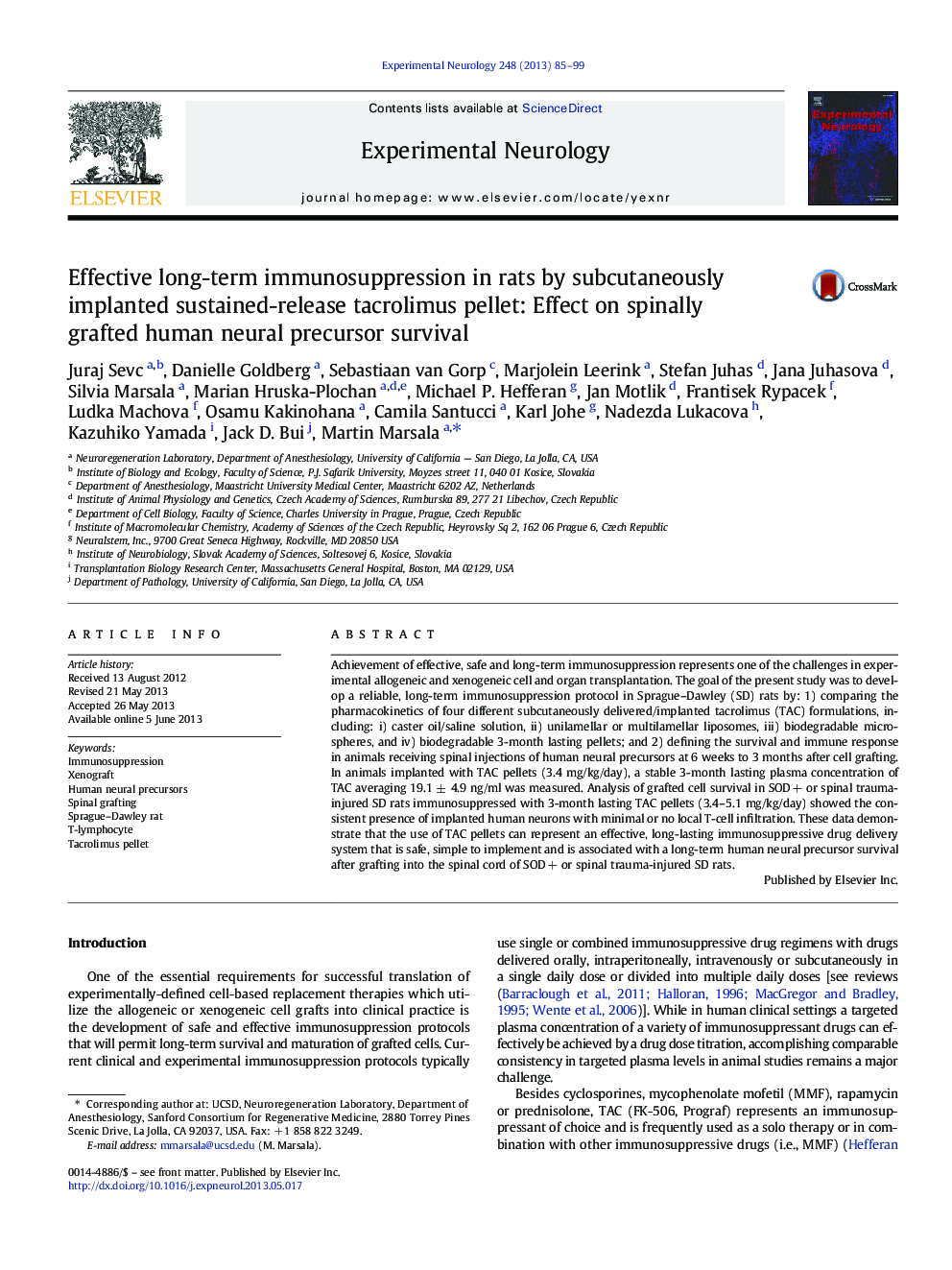| Article ID | Journal | Published Year | Pages | File Type |
|---|---|---|---|---|
| 6018043 | Experimental Neurology | 2013 | 15 Pages |
Abstract
Achievement of effective, safe and long-term immunosuppression represents one of the challenges in experimental allogeneic and xenogeneic cell and organ transplantation. The goal of the present study was to develop a reliable, long-term immunosuppression protocol in Sprague-Dawley (SD) rats by: 1) comparing the pharmacokinetics of four different subcutaneously delivered/implanted tacrolimus (TAC) formulations, including: i) caster oil/saline solution, ii) unilamellar or multilamellar liposomes, iii) biodegradable microspheres, and iv) biodegradable 3-month lasting pellets; and 2) defining the survival and immune response in animals receiving spinal injections of human neural precursors at 6 weeks to 3 months after cell grafting. In animals implanted with TAC pellets (3.4 mg/kg/day), a stable 3-month lasting plasma concentration of TAC averaging 19.1 ± 4.9 ng/ml was measured. Analysis of grafted cell survival in SOD + or spinal trauma-injured SD rats immunosuppressed with 3-month lasting TAC pellets (3.4-5.1 mg/kg/day) showed the consistent presence of implanted human neurons with minimal or no local T-cell infiltration. These data demonstrate that the use of TAC pellets can represent an effective, long-lasting immunosuppressive drug delivery system that is safe, simple to implement and is associated with a long-term human neural precursor survival after grafting into the spinal cord of SOD + or spinal trauma-injured SD rats.
Related Topics
Life Sciences
Neuroscience
Neurology
Authors
Juraj Sevc, Danielle Goldberg, Sebastiaan van Gorp, Marjolein Leerink, Stefan Juhas, Jana Juhasova, Silvia Marsala, Marian Hruska-Plochan, Michael P. Hefferan, Jan Motlik, Frantisek Rypacek, Ludka Machova, Osamu Kakinohana, Camila Santucci, Karl Johe,
